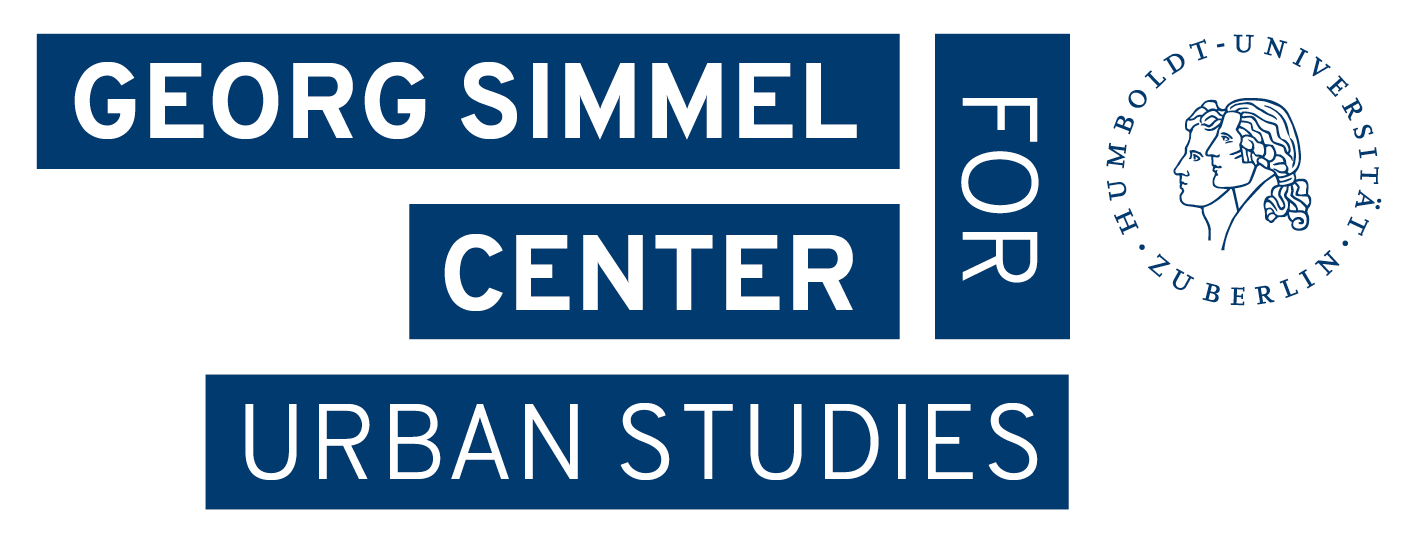Think and Drink
In cooperation with the Department of Urban Sociology our Think and Drink colloquium takes place every semester, at which national and international academics speak on various topics of urban research. All events this semester will take place on the ground floor of Universitätsstraße 3b, 10117 Berlin, Room 002
Winter Semester 2025/2026
Monday, the 3rd of November 2025, 18 o'clock
Valentin Domann, Zita Seichter, Jan Hutta
Humboldt-Universität zu Berlin, HafenCity Universität Hamburg, Universität Bayreuth
Rethinking Far-Right Territorialisation
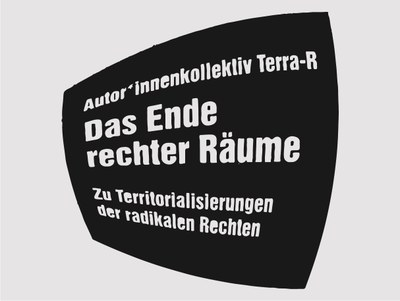
In the current surge of authoritarian and far-right mobilisations, spatial dynamics play a crucial role – from urban-rural divides to contestations around nationhood and globalisation. Existing analyses framed around rechte Räume (‘right-wing spaces’) or rechte Raumnahme (‘far-right spatial appropriation’) fall short of capturing these dynamics, however, as they tend to conceptualise space as a bounded container subject to far-right control.
To move towards a more nuanced understanding, this talk introduces the notion of ‘far-right territorialisation’, as developed in the collaboratively authored book Das Ende rechter Räume (Autor*innenkollektiv Terra-R 2025). We argue that territorialisation practices by far-right actors intertwine with the imaginative and discursive territorialisation in relation to the far-right. This dual process of territorialisation, we demonstrate, can productively be analysed through its performative, affective, imaginative, and infrastructural dimensions. In doing so, we seek to move towards a more complex reading of formations such as the perceived split between privileged liberal urban centres and ‘abandoned’ rural regions allegedly ceded to far-right forces – not as fixed divisions, but as contested, multifaceted co-constructions.
Monday, the 10th of November 2025, 18 o'clock
Carolina Sepulveda
Harvard GSDQueer Urban Futures: Anticipatory Space-Making Practices and Affective Infrastructure in Berlin
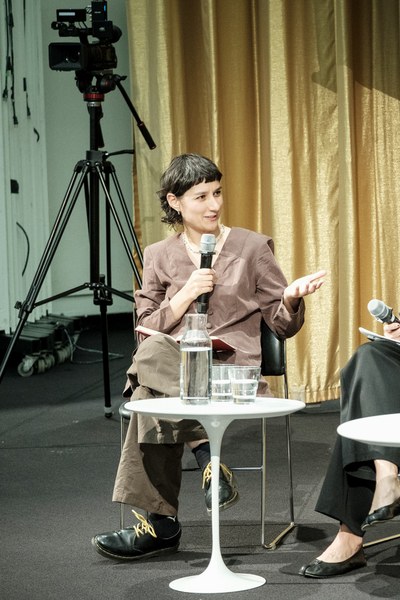
Dissent has long shaped Berlin’s urban life, expanding the possibilities of how space is claimed, imagined, and governed. This presentation situates Berlin as a historical and ongoing site of queer struggle where feminist, lesbian, Afro-German, and trans-led movements have reshaped the meaning of urban change itself. The German acronym FLINTA (Female, Lesbian, Intersex, Non-binary, Trans, Agender) serves as an entry point into these genealogies, linking the FrauenLesben squats of the 1980s to contemporary FLINTA-led collectives that continue to fight for equality, freedom, and self-determination. While the term opens new political and spatial possibilities within longer gender genealogies, it also complicates the relationship between exclusion and minoritarian futures—an ambiguity central to this research. By examining affective infrastructures that sustain dissent and belonging, the project reframes urban transformation through the ongoing struggles of dissident groups to claim, contest, and sustain space in the city.
Monday, the 17th of November 2025, 18 o'clock
Indrawan Prabaharyaka, Jörg Stollmann, Veljko Marković
Humboldt-Universität zu Berlin, Technische Universität Berlin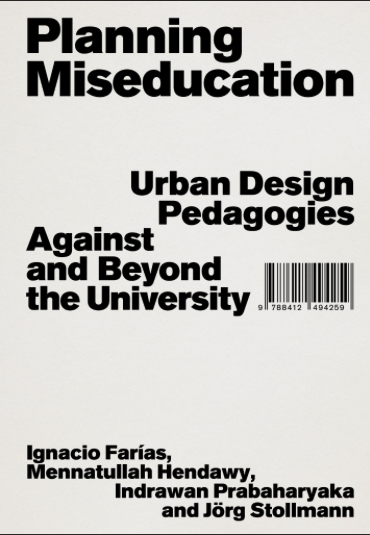 Originated from dissatisfaction with the way urban design and planning taught at universities and schools of architeture and planning, Planning Miseducation is a first step toward opening the discussion more broadly to include urban learnings, pedagogies and apprenticeships that change the ways city-making is commonly learned. Accordingly the aim of the book is to collect and assemble voices within, against, and outside of planning schools to see how they may contrast and complement each other; to reclaim miseducation as a positive, planned activity, not as a result of unpredictable and unwanted ‘mutation’; and to identify specific pedagogical practices and artifacts for miseducation: distinct devices used for learning, unlearning, and relearning. In this event, next to the general introduction of the book, we introduce the summary of two chapters: the invention of planning evidences and the significance of media platforms for education.
Originated from dissatisfaction with the way urban design and planning taught at universities and schools of architeture and planning, Planning Miseducation is a first step toward opening the discussion more broadly to include urban learnings, pedagogies and apprenticeships that change the ways city-making is commonly learned. Accordingly the aim of the book is to collect and assemble voices within, against, and outside of planning schools to see how they may contrast and complement each other; to reclaim miseducation as a positive, planned activity, not as a result of unpredictable and unwanted ‘mutation’; and to identify specific pedagogical practices and artifacts for miseducation: distinct devices used for learning, unlearning, and relearning. In this event, next to the general introduction of the book, we introduce the summary of two chapters: the invention of planning evidences and the significance of media platforms for education.Monday, the 24th of November 2025, 18 o'clock
Fabio Iapaolo
Polytechnic University of Milan, Oxford Brookes University
Rethinking the Subject of Urban AI: From Autonomy to Cognitive Ecologies
 Much has been written about the impacts of artificial intelligence (AI) on cities, from governance and mobility to surveillance and labour. Far less attention, however, has been afforded to the conceptual premises that underpin these analyses. What assumptions about intelligence, autonomy, or agency shape such accounts, and how is the human subject invoked in relation to technology? This talk adopts a critical posthumanist perspective to rethink human–technology relations in the context of urban AI. Drawing on the work of Braidotti, Latour, and Hayles, it suggests that revisiting these concepts unsettles conventional framings of urban AI and multiplies the sites, actors, and relations that matter to its politics. This reorientation, I propose, opens up new ethico-political questions, moving beyond what AI does to cities and toward how cities, humans, and technologies co-constitute one another in urban cognitive ecologies.
Much has been written about the impacts of artificial intelligence (AI) on cities, from governance and mobility to surveillance and labour. Far less attention, however, has been afforded to the conceptual premises that underpin these analyses. What assumptions about intelligence, autonomy, or agency shape such accounts, and how is the human subject invoked in relation to technology? This talk adopts a critical posthumanist perspective to rethink human–technology relations in the context of urban AI. Drawing on the work of Braidotti, Latour, and Hayles, it suggests that revisiting these concepts unsettles conventional framings of urban AI and multiplies the sites, actors, and relations that matter to its politics. This reorientation, I propose, opens up new ethico-political questions, moving beyond what AI does to cities and toward how cities, humans, and technologies co-constitute one another in urban cognitive ecologies.Monday, the 1st of December 2025, 18 o'clock
Süheyla Schroeder
Berlin International University of Applied Sciences
Urban Creative Resilience in Times of Global Polycrisis: Berlin's Craft Makers Navigating Systemic Urban Challenges
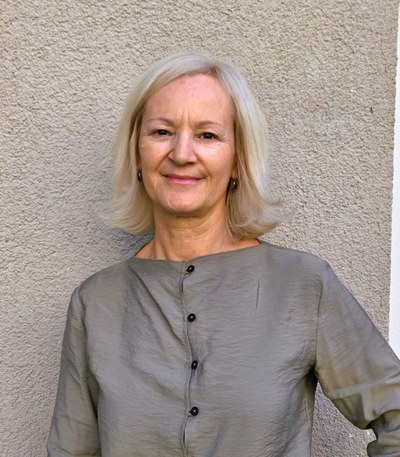
Urban areas worldwide confront converging crises that challenge conventional development models and governance frameworks. This study examines Berlin’s craft makers as critical cases of “quiet sustainability” -localized practices that address multiple urban challenges without explicit political engagement. Drawing on six months of ethnographic fieldwork with 30 practitioners across diverse craft disciplines, the research demonstrates how micro-enterprises navigate "polycrisis urbanism”, referring to the condition where housing, economic, environmental, and social crises intersect and amplify in urban space. Makers respond through hybrid spatial strategies, alternative livelihood models, and community-centred production practices that simultaneously counter displacement pressures, environmental degradation, and social atomization. These practices illustrate forms of "regenerative urbanism" approaches that build community capacity while addressing systemic challenges through integrated responses that prioritize well-being over growth. Yet makers remain vulnerable to market forces and policy neglect that privilege growth-oriented development over community resilience. The analysis reveals tensions between scaling alternative practices and maintaining their locally-embedded, relationship-based characteristics essential for addressing interconnected urban challenges. The findings suggest cities need governance innovations that support practices providing multiple urban benefits simultaneously, moving beyond sectoral policies toward regenerative urban development models.
Monday, the 8th of December 2025, 18 o'clock
Casper Bruun Jensen, Ignacio Farías
Chulalongkorn University, Humboldt-Universität zu BerlinUrban Critical Zones or: How to Ecologize Urban Theory
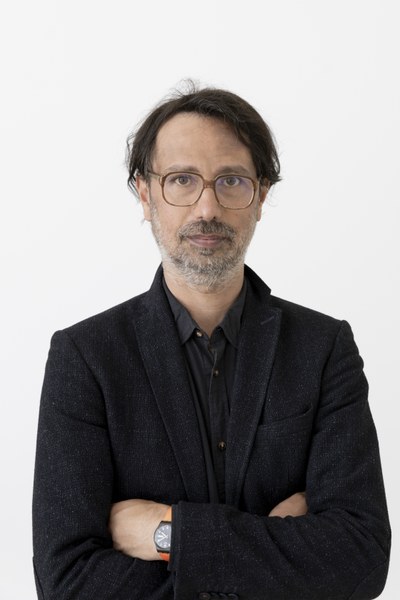
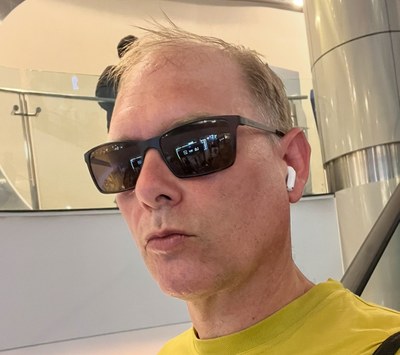
Monday, the 15th of December 2025, 18 o'clock
Christina Schwenkel
University of California at RiversideEchoes of Urban Catastrophe: Sonic Governance in an Era of Crisis and Vulnerability
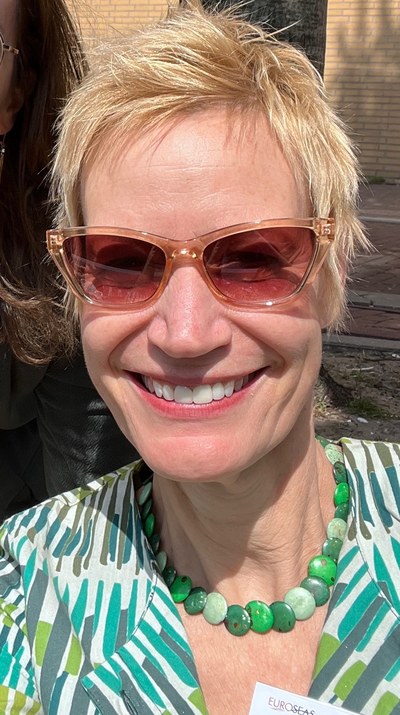
Disasters disrupt, altering the course of urban futurity and how people navigate and make sense of compounding risk and uncertainty. This talk argues for greater attention to the sensory dimensions of urban crises, particularly as experienced through sonic rupture. Catastrophic events not only generate profound disruptions to the social, economic, and temporal rhythms of everyday life. They also effect a radical sensory reorientation—one that compels new ways of being in, caring for, and attuning to urban environments through sound. In an era dominated by vision, what can the sounds associated with declared emergencies reveal about crisis governance and experiences of vulnerability in the city? How might listening to acoustic atmospheres offer new insights into states of exception and their implications for collective life? Drawing on embodied “soundwork” conducted in Hanoi, Vietnam during the pandemic, this talk examines how urban soundscapes became sites of intervention within a framework of “sonic socialism.” Media infrastructures and sonic technologies amplified state authority, rallying public attention against external threats, yet social cohesion coexisted with acoustic dissent. By centering sound, this talk shows how a sensory grammar of crisis opens critical possibilities to attend to vulnerability and urban care practices amid intersecting emergencies.
Monday, the 5th of January 2026, 18 o'clock
Daniela Hunold
Hochschule für Wirtschaft und Recht Berlin
Conflicts in the Context of Global Supply Chains: Protest and Protest Policing in Germany and Brasil
 Protests against global supply chains have become key arenas in which social inequality, environmental harm, and state security practices intersect. While corporations frame resilience as maintaining efficient production, marginalized groups—especially Indigenous peoples and rural workers—experience resilience as coping with displacement, precarious labor, and ecological degradation. In this context, protest becomes a crucial means of collective resistance.
Protests against global supply chains have become key arenas in which social inequality, environmental harm, and state security practices intersect. While corporations frame resilience as maintaining efficient production, marginalized groups—especially Indigenous peoples and rural workers—experience resilience as coping with displacement, precarious labor, and ecological degradation. In this context, protest becomes a crucial means of collective resistance.
This presentation examines how protests in Brazil and Germany emerge around extractive industries and how police respond to them. It highlights how law enforcement agencies—often aligned with corporate interests—shape, restrict, or criminalize mobilizations, thereby influencing the resilience of social movements. By comparing both countries, the talk shows how protest policing can undermine or strengthen movements challenging exploitation within global supply chains.
Monday, the 19th of January 2026, 18 o'clock
Colin McFarlane
Durham University
Crisis and the Urban Imagination
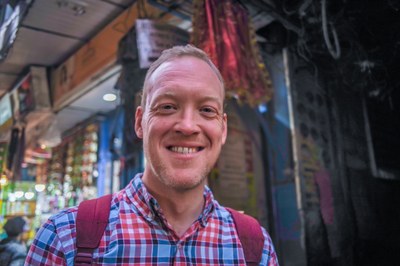
Monday, the 26th of January 2026, 18 o'clock
Catalina Ortiz
University College London
Territorial Healing: Framing Reparative Justice in Urban Spaces

What does it mean to heal territories under conditions of polycrisis? This talk reflects on how shifting crisis conditions demand new theoretical tools, political vocabularies, and methodological approaches in urban research. I propose territorial healing as a political vocabulary to frame urban interventions in contexts marked by displacement, violence, and protracted conflict. Territorial healing recognises the affective and territorial ruptures produced by violence and foregrounds reparation as a spatial, embodied, and collective process. A central concern is how to frame the political project of reparative justice in urban spaces and across different scales. Within this frame, the Living Archive of Moravia project advances decolonial feminist methodologies and new sensibilities for urban research. Developed with community organisations, the Moravia Cultural Development Centre, and international students, the project mobilised embodied and spatial practices—murals, planting, healing rituals, and body–territory mapping—to engage struggles over tenure, migrant homing, and ecological repair, opening pathways for relational, reparative, and place-based urban transformation.
Monday, the 2nd of February 2026, 18 o'clock
Mert Pekşen (CANCELED)
Universität OsnabrückMemory, Violence, and Knowledge Production: Urban Politics in the Polycrisis
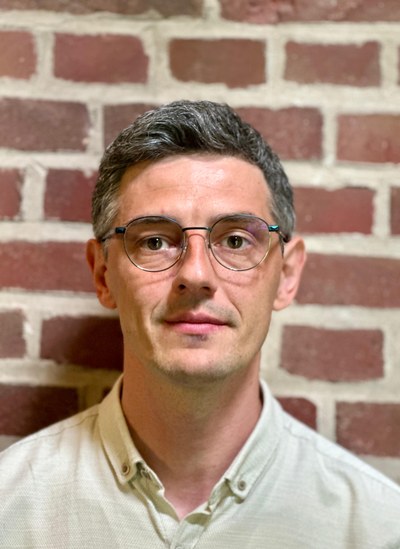
In the context of today’s global polycrisis—marked by forced migration, rising political violence, and crises of recognition and legitimacy—urban space becomes a critical lens for understanding how systemic disruptions are lived, contested, and reconfigured on the ground. By tracing the entanglements of urban memory politics, bottom-up knowledge production on and documentation of racist violence, and the contested politics of recognition, I highlight both the fractures and the solidarities that emerge in urban struggles. This perspective invites critical urban studies to attend to exclusion, recognition, and the enduring infrastructures of solidarity that persist amid systemic disruption. I argue that cities are not only sites of refuge and encounter but also arenas of conflict where competing claims to belonging, justice, and solidarity are continuously negotiated—making them central to how we understand and respond to the condition of political and social polycrisis.
Monday, the 9th of February 2026, 18 o'clock
Victoria Sánchez Belando (CANCELED)
Universitat de Barcelona
Public-Common Partnerships as instruments for commonifying the city: Learnings from the case of Barcelona
 This presentation examines the contribution of public-common partnerships (PCPs) in democratizing access to and the management of public urban assets and services, as a means of decommodifying and commonifying urban governance. Drawing on the analysis of the Citizen Assets for Community Use and Management program (2017)—a regulatory framework for the collective use and stewardship of publicly owned assets and services in Barcelona—we explore the extent to which PCPs can alter the bundle of rights exercisable over property (Schlager & Ostrom, 1992), and their potential to reshape urban governance in favor of socially driven appropriation of urban infrastructures and space.
This presentation examines the contribution of public-common partnerships (PCPs) in democratizing access to and the management of public urban assets and services, as a means of decommodifying and commonifying urban governance. Drawing on the analysis of the Citizen Assets for Community Use and Management program (2017)—a regulatory framework for the collective use and stewardship of publicly owned assets and services in Barcelona—we explore the extent to which PCPs can alter the bundle of rights exercisable over property (Schlager & Ostrom, 1992), and their potential to reshape urban governance in favor of socially driven appropriation of urban infrastructures and space.
PCPs have largely been discussed as a response to the social and economic impacts of the 2008 Great Recession, as well as to the municipalist agenda of Barcelona en Comú (2015–2023). In this piece, we propose to explore their emergence and role through the lens of path dependency, institutional dynamics and multilevel governance arrangements, focusing on the factors that shape the commoning potential of these instruments.
